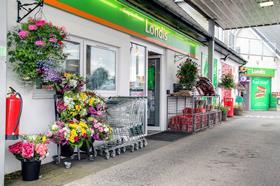
Produce suppliers could benefit from the Tesco-Booker merger due to more financial security and buying power in the high street retailers and restaurants served by the group.
That’s according to analysts and industry insiders who have reacted to news of the proposed merger today (27 January).
Other benefits include potential for fresh produce suppliers to develop own-brand ranges through Booker-owned symbol groups such as Londis and Budgens, as well as Tesco’s One Stop, and greater access to multiple channels of the market via Booker’s strong links with caterers and restaurant chains.
“The merger should herald some decent synergies in terms of procurement and independent retailers could really benefit from being part of the Tesco family, as evidenced by the success of the One Stop franchise business,” said Bryan Roberts, global insights director at retail analysis firm TCC Global.
The deal also gives Tesco greater access to the out-of-home consumption market, Roberts said, while fresh produce suppliers produce should benefit due to these growth prospects, and a chance to develop own brand ranges.
David Jinks, of logistics firm ParcelHero, said the merger is “good news” and will bring financial security and confidence to the UK’s high streets, and those who supply them.
“What we need is more homes being built in our high streets to bring life back, supported by restaurants, convenience stores, specialist grocers and the like. And that’s why the merger is good news. Booker supplies 450,000 caterers, 120,000 retailers and 700,000 small businesses including Wagamama, Rick Stein and Carluccio’s. Tesco’s enormous buying power could bring the benefit of these economies of scale to all these key high street brands.”
“Amazon has long wished to be the conduit through which all things are bought; now Tesco could take on this role in the UK, becoming the logistics behind many High Street brands; giving it a finger in many distribution pies,' he added.
But Jonathan Buxton, head of consumer and retail at Cavendish Corporate Finance, said: “This is a deal which departs from Tesco’s traditional consumer business focused model and we question the impact this acquisition will have on independent retailers (who are themselves competitors to Tesco) if prices for products go up under Tesco's ownership.
“By combining with Britain’s’ biggest food wholesaler, Tesco can expand the reach of its products via different distribution channels and in doing so could increase pressure on independent retailers and suppliers.”
Jinks said: “It’s a deal not without issues. Small shops that rely on Booker as a wholesaler will worry Tesco could influence prices at wholesale level. But if the merger is allowed, and Tesco’s and Booker’s many high street retail business customers truly co-operate; it could be the saving of the high street.”
Chief executive at economics consultancy Retail Economics, Richard Lim, called the deal a “game changer in the food industry”. “[Tesco’s] laser-like focus on the core UK food business is cutting deeper down the supply chain,” he said. “The new group will be well placed to capitalise on home shopping and the increasingly important area of eating out.”
Speaking about the need for clearance by the Competition and Markets Authority (CMA), Neil Shah, director of research at Edison Group, said Tesco CEO Dave Lewis is “consciously” talking how the deal would not change its retail store footprint, but that is “almost a double bluff”.
“He will be careful to avoid talking food supply chain where control of the market including competitor retailers is what will make rivals concerned,” he said.
Roberts added: “As with any M&A, there are risks attached and a lot depends on what philosophical distinction the CMA places on supplying stores as opposed to owning them.”



